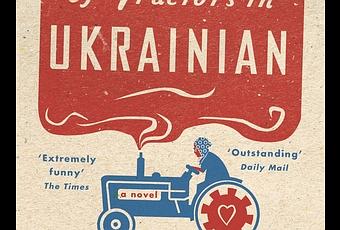

The action takes place in Peterborough, England, and is narrated by the youngest daughter, Nadezhda, a university lecturer in Sociology. In the process of sorting out Nikolai's marital entanglements, Nadezhda also uncovers secrets from her family's history and learns about their experiences during the Ukrainian famine and Stalin's purges. Nikolai, a former engineer who emigrated to Britain in the aftermath of the Second World War, is writing a history of tractors in Ukrainian, translated extracts from which appear throughout the novel. They find themselves united against a common enemy in Valentina, whose grasping, manipulative behavior escalates until the daughters finally succeed in obtaining a divorce for their father.

Concerned about Valentina's motives, Nadezhda and Vera are drawn back into contact with each other after a long period of estrangement. The novel describes the reactions of two daughters when their widowed, 84-year-old father Nikolai marries a highly sexual and much younger Ukrainian immigrant, Valentina. In a BBC Bookclub interview, the author mentioned that some reviewers of the Ukrainian translation were hostile, seeing it as an attack on their country. The book was originally published in English, and has been translated into Russian and Ukrainian. Over a million copies have been sold in the UK. The novel won the Bollinger Everyman Wodehouse Prize at the Hay literary festival, the Waverton Good Read Award 2005/6, and was short-listed for the 2005 Orange Prize for Fiction, losing to Lionel Shriver's We Need to Talk About Kevin. A Short History of Tractors in Ukrainian is a humorous novel by Marina Lewycka, first published in 2005 by Viking ( Penguin Books).


 0 kommentar(er)
0 kommentar(er)
